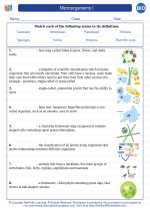Aggression
Aggression is a complex behavior that can be influenced by biological, psychological, and social factors. In the field of biology, aggression is often studied in the context of animal behavior and the role of genetics, hormones, and neurobiology in influencing aggressive behavior. In psychology, aggression is examined from the perspective of individual differences, cognitive processes, and social learning. Social factors, including family dynamics, peer influence, and cultural norms, also play a significant role in shaping aggressive behavior.
Biological Factors
Biological factors that contribute to aggression include genetics, hormones, and neurobiology. Genetic studies have shown that some individuals may be predisposed to aggressive behavior due to inherited traits. Hormones such as testosterone have been linked to increased aggression, and research has also explored the role of neurotransmitters and brain structures in influencing aggressive tendencies.
Psychological Factors
Psychological factors that influence aggression include individual differences in personality, cognitive processes, and social learning. Personality traits such as impulsivity and low empathy have been associated with higher levels of aggression. Cognitive processes, such as hostile attribution bias, can also contribute to aggressive behavior. Social learning theory suggests that individuals learn aggressive behaviors through observation and reinforcement.
Social Factors
Social factors, including family dynamics, peer influence, and cultural norms, can shape aggressive behavior. Family environment, including parenting styles and exposure to violence, can impact a person's likelihood of engaging in aggressive behavior. Peer influence, social norms, and media portrayals of aggression can also contribute to the development of aggressive tendencies.
Study Guide
- What are the biological factors that influence aggression?
- How do genetics, hormones, and neurobiology contribute to aggressive behavior?
- Discuss the role of testosterone in influencing aggression.
- Explain the psychological factors that contribute to aggressive behavior.
- How do personality traits and cognitive processes influence aggression?
- What is social learning theory and how does it relate to aggression?
- Describe the social factors that shape aggressive behavior.
- How does family environment and peer influence contribute to aggression?
- Discuss the impact of cultural norms and media portrayals on aggressive behavior.
◂Biology Worksheets and Study Guides High School. Microorganisms I
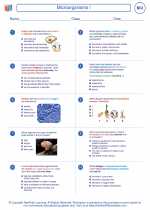
 Worksheet/Answer key
Worksheet/Answer key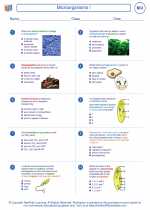
 Worksheet/Answer key
Worksheet/Answer key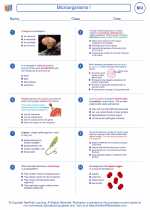
 Worksheet/Answer key
Worksheet/Answer key
 Vocabulary/Answer key
Vocabulary/Answer key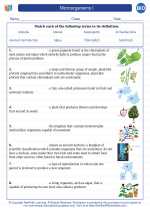
 Vocabulary/Answer key
Vocabulary/Answer key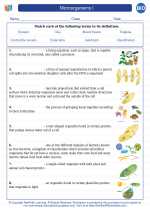
 Vocabulary/Answer key
Vocabulary/Answer key
 Vocabulary/Answer key
Vocabulary/Answer key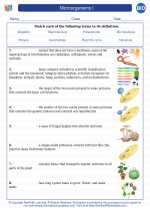
 Vocabulary/Answer key
Vocabulary/Answer key